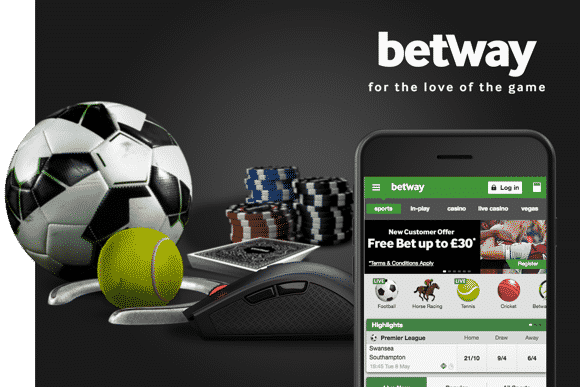The Favorite Fallacy: Why bet on a favorite? Betway
There’s a strange comfort in betting on the favorite. Maybe it’s the illusion of safety. The stats, the form table, the confident commentators they all point one way. You click, place the bet, lean back like you’ve made a rational investment.
But here’s the twist: favorites don’t always win, and even when they do, the payoff might barely rattle your account. That’s where underdog bettors live on the edge of probability, inside the small print of chaos. It’s not about cheering for miracles. It’s about hunting value where others see risk.

Why Favorites Feel Safer (But Often Aren’t)
In online betting, favorites are like the front-row seats as they cost more and aren’t always worth it. Odds are shorter because the public swarms to them, which shrinks the potential payout. Take a football match: if Manchester City is priced at 1.30, that means you’d earn $30 profit on a $100 bet. Sure, they might win. But if they don’t? You’re down $100, just like the guy who bet on the draw at 5.50.
What’s worse is the trap of “accumulators” built on favorites. Add five of them to squeeze some payout juice and suddenly you’re one Napoli draw away from watching your ticket go up in flames.
Underdogs Are Mispriced More Often Than You Think
Now consider the underdog. In most sports, especially football or MMA, pricing isn’t always about team quality rather it’s about public sentiment. Bookmakers know where the herd is heading. So they tilt the odds, subtly punishing emotion-driven bets and inflating the odds for outsiders.
Take Brentford against a top-six Premier League club. They might be priced at 6.00 or more, even when form, injuries, or fixture congestion suggest the match could go either way. This is where sharp bettors of Betway feast. They look for the “wrong odds” that are games where the underdog isn’t likely to win, but has a better chance than the odds suggest.
The Psychology Behind Both Choices
Favorites feed the need for confirmation. You place your bet, and every pass they complete is a dopamine hit. It’s validation. Betting on an underdog, though, is less emotional. It’s analytical. You’re not hoping to win—you’re expecting the market to overreact and miss the nuance. Betway
This is why seasoned punters often lean into underdogs. They’re not chasing Cinderella stories. They’re chasing margin.
The Math Tells the Story
Say you bet $10 on a favorite at 1.40. After 10 wins, you’ve made $40 profit. But if even two of those bets lose, your net drops dramatically.
Now, take the same $10, but bet it on underdogs at 4.00. You only need to win three out of ten to come out ahead.
Sure, the hit rate drops—but the profit per win skyrockets. It’s riskier, yes, but smarter if you know how to pick your spots.
So, Who Should You Back? Betway
Neither, blindly. The best bettors don’t care about labels. They care about edges. They ask: “Are these odds wrong?” A favorite can be a bargain when the market underestimates them after a slump. An underdog can be gold when their price ignores key variables tactical shifts, motivation, weather, even travel fatigue. Betway
Online betting platforms like Betway are flooded with options. But the sharpest players don’t just look at form—they look at psychology, public betting patterns, and inefficiencies. That’s the real edge.
Final Whistle
Betting favorites feels clean. Betting underdogs feels dirty. But somewhere in that mess of doubt and data lies the smart money. If you’re betting just to win, go ahead—click the favorite. But if you’re betting to profit long-term, start learning where the underdogs are being overlooked.








